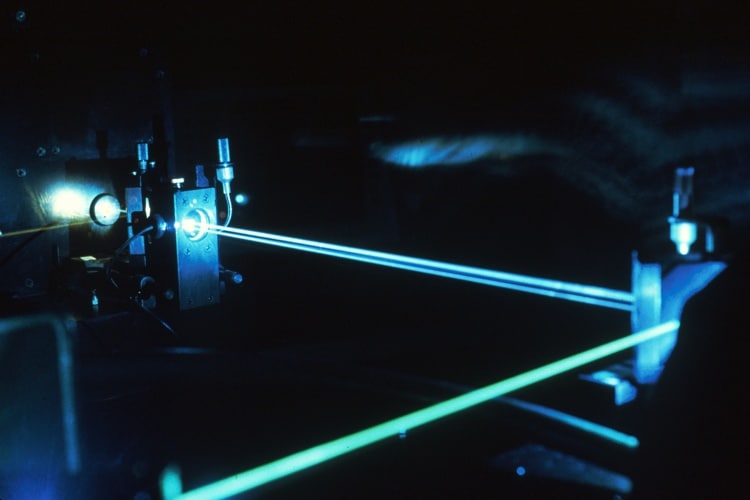The research, published in Nature Scientific Reports, details how the laser Doppler system is able to detect subtle differences in blood flow beneath malignant and non-malignant moles. From 55 patients with atypical melanoma, the laser Doppler signal correctly identified 100 per cent of those with malignant skin.

“We used our knowledge of blood flow dynamics to pick up on markers which were consistently different in the blood vessels supplying malignant moles and those beneath normal skin,” said Prof Aneta Stefanovska of Lancaster University.
“Combining the new dynamical biomarkers we created a test which, based on the number of subjects tested to date, has 100 per cent sensitivity and 90.9 per cent specificity, which means that melanoma is identified in all cases where it is present, and ruled out in 90.9 per cent of cases where it is not.”
The laser test takes approximately 30 minutes. Once complete, the fluctuations in recorded signals are analysed using methods developed by physicists at Lancaster University. In the case of this study, the patients subsequently had their moles biopsied to ascertain the accuracy of the laser test, but the researchers believe the technique could dramatically reduce the need for biopsies in the future.
“Skin malignant melanoma is a particularly aggressive cancer associated with quick blood vessel growth which means early diagnosis is vital for a good prognosis,” said Prof Marco Rossi from Pisa University.
“The current diagnostic tools of examination by doctors followed by biopsy inevitably leads to many unnecessary invasive excisions. This simple, accurate, in vivo distinction between malignant melanoma and atypical moles may lead to a substantial reduction in the number of biopsies currently undertaken.”




Glasgow trial explores AR cues for autonomous road safety
They've ploughed into a few vulnerable road users in the past. Making that less likely will make it spectacularly easy to stop the traffic for...